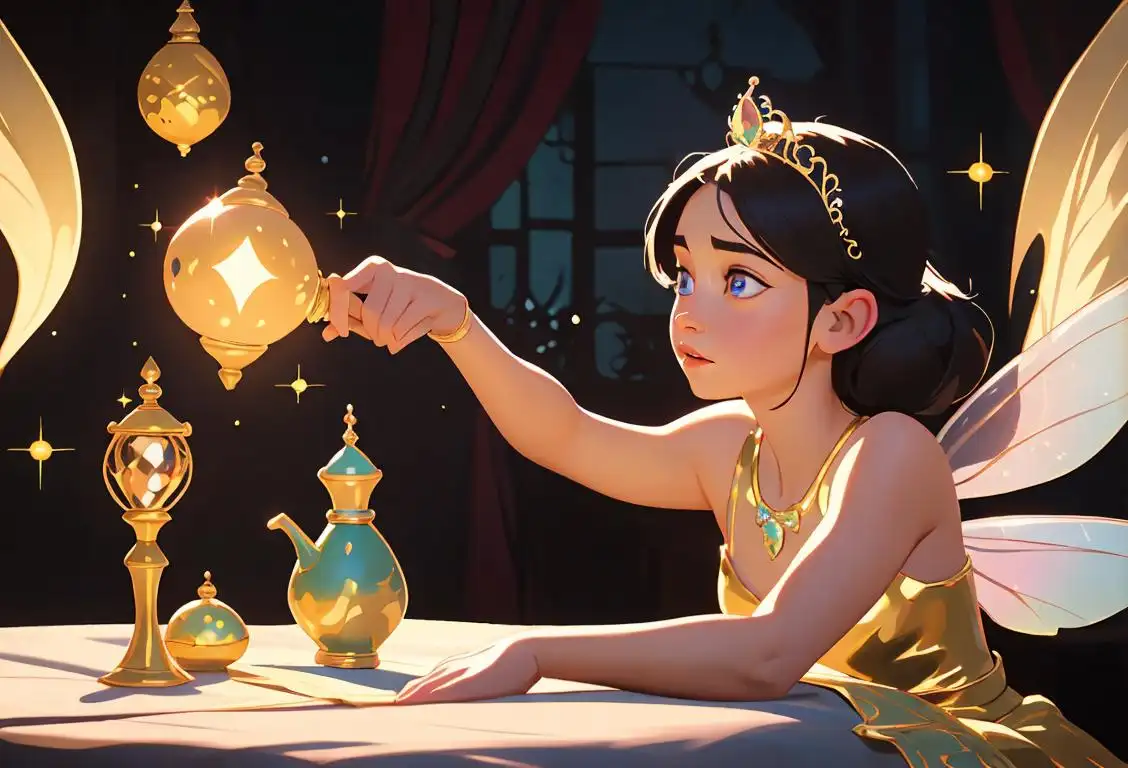National Wish Day

Hey there, national day enthusiasts! Get ready to make a wish because it's National Wish Day! This exciting day is all about channeling your inner genie and dreaming big. Whether you want a million dollars, a trip to the moon, or a lifetime supply of pizza, today is the day to make it known. So, grab your magic lamp and let's dive into the realm of wishes!
When is Wish Day?
It's national wish day on the 29th April.
The Origins of National Wish Day
Let's face it, we all have wishes. It's human nature to yearn for something more, something extraordinary. National Wish Day was created to celebrate those dreams and remind us that anything is possible if we believe.
While the exact origin of this delightful day is a bit hazy, it gained popularity online and quickly found its way into the hearts of wishful thinkers all over the world. From social media shoutouts to wish-themed hashtags, this day has become an internet sensation and an opportunity for people to share their deepest desires.
How to Celebrate National Wish Day
Celebrating National Wish Day is as easy as closing your eyes, taking a deep breath, and making a wish. Here are a few fun and creative ways to make the most of this day:
- Write down your wishes: Grab a pen and paper, and write down all the wishes you've been harboring. Whether they're big or small, putting them in writing can make them feel more real and attainable.
- Share your wishes online: Take to social media and share your wishes using the hashtag #NationalWishDay. You never know who might stumble upon your wish and make it come true!
- Grant someone else's wish: Spread the wish-granting magic by offering to fulfill someone else's wish. It could be something as simple as buying a coffee for a stranger or helping a friend with a project they've been dreaming about.
Did You Know?
Did you know that the tradition of blowing out birthday candles and making a wish comes from ancient Greece? It was believed that when you blew out the candles, your wish would travel up to the gods and be granted. So, make sure to blow out those candles on your next birthday and let the wish-making tradition continue!
History behind the term 'Wish'
Old English Period (5th - 11th century)
Origin in Old English
The term 'wish' traces its origins back to Old English, where it was spelled 'wȳscan.' In Old English, 'wȳscan' meant to desire or long for something. This term was derived from the Proto-Germanic word 'wunskōną,' which meant to wish or desire.
Middle English Period (11th - 15th century)
Evolution and the Influence of French
During the Middle English period, the term 'wish' went through linguistic changes. It evolved from 'wȳscan' to 'wischen' and later to 'wischenen.' This evolution was influenced by the French language, specifically the Old French word 'wis,' which meant to wish. The French influence led to the modern spelling and pronunciation of the term as 'wish.'
Shakespearean Era (16th - 17th century)
Wishes in Literature
The term 'wish' gained prominence during the Shakespearean era through its usage in literary works. Renowned playwright William Shakespeare frequently utilized wishes and their consequences as themes in his plays, such as 'A Midsummer Night's Dream' and 'The Tempest.' These works popularized the notion of granting wishes and the potential pitfalls that may accompany them.
Modern Era (18th century - present)
Cultural Significance
In the modern era, wishes have become deeply ingrained in various cultures around the world. Wishing wells, blowing out birthday candles, and making New Year's resolutions are just a few examples of popular customs associated with wishes. Additionally, the phrase 'make a wish' is often uttered before blowing out candles on a birthday cake, emphasizing the magical and hopeful nature of wishes.
Did you know?
Did you know that the tradition of blowing out birthday candles and making a wish comes from ancient Greece? It was believed that when you blew out the candles, your wish would travel up to the gods and be granted.Tagged
romance nsfw fun wishFirst identified
29th April 2017Most mentioned on
29th April 2017Total mentions
10Other days
Wish Day
Weatherpersons Day
Children Day
Kisses Day
Awareness Day
One Day
Love Pizza Day
Happiness Day
Opposite Day
Aldub Day








